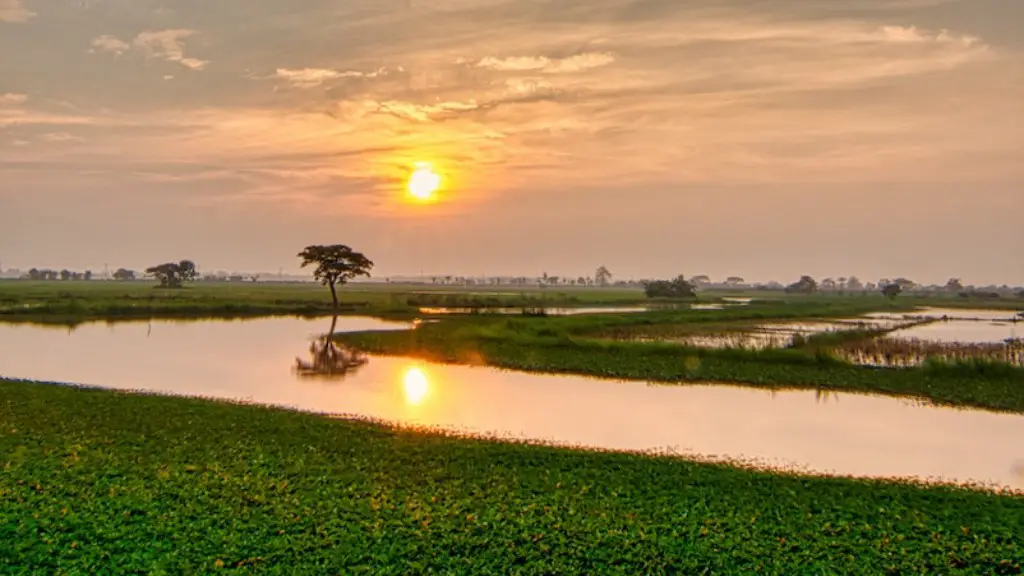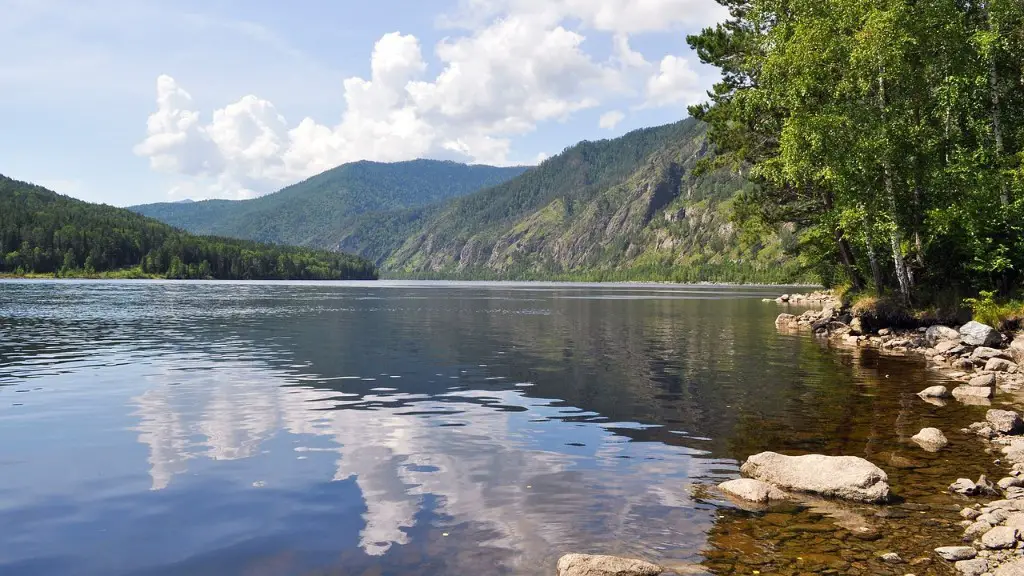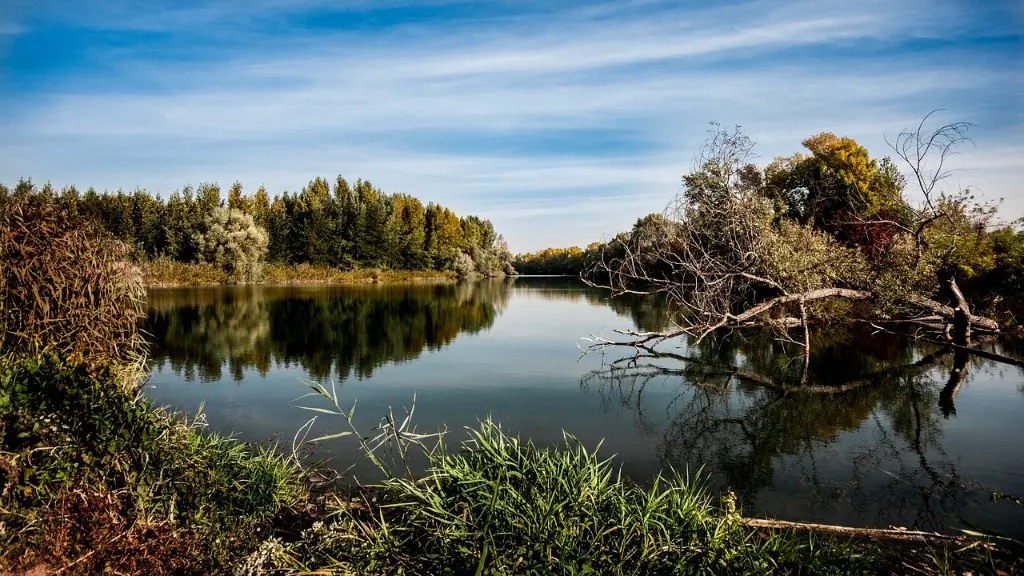The Nile river is arguably one of the world’s most iconic rivers. Encompassing much of North Africa, it serves as a critical source of drinking water and irrigation. The Nile is also closely linked to the history and culture of many countries in the continent. So, which continent is the Nile River in? The Nile River is in the continent of Africa.
The Nile is one of the longest rivers in the world, stretching a whopping 4,132 miles. It’s source is in Burundi, and it flows to the Mediterranean Sea in northeastern Egypt. The Nile carries heavy sediment loads, which creates extremely fertile soil in its delta, allowing populations to thrive in the area around it. This has provided an abundance of crops and fish throughout the centuries. The Nile is also a major source of electricity. Hydroelectric power plants have been built along the Nile and its tributaries, providing a renewable source of energy.
The Nile River’s importance to the continent of Africa is hard to overstate. Over 400 million people rely on the river for drinking water and irrigation. It has been an integral part of trade and transportation in the region for centuries, facilitating the growth of many civilizations in northern Africa. The ancient Egyptian civilization flourished due to the bounty provided by the Nile, providing a steady source of food and other resources. It is also closely linked to many religions and cultural beliefs, further emphasizing its importance in the region.
The Nile is not without its issues, however. Pollution and overuse threatens to degrade the river’s quality and threatens the lives of millions who rely on it. Population growth is also leading to increased demand for freshwater, leading to shortages in the region. In addition, climate change has caused water levels to rise and fall unpredictably, further putting strain on the river’s resources. As such, it is necessary to protect the river and its resources for the future.
In order to protect the Nile, many countries in the region have taken steps to ensure it’s continued health. Governments have signed agreements to cooperate in managing the river and its resources. Environmental agencies have implemented strict regulations to reduce pollution and safeguard wildlife. In addition, numerous charities have been established to raise awareness of the Nile’s plight and to lobby governments for better policies.
The Nile river continues to remain an essential part of daily life in Africa, and it is likely to remain so for many years to come. It is vital that we continue to work together to protect this important resource for the continent’s future.
The Historical Importance of the Nile
The Nile River has been of immense historical importance to Africa. It was a major factor in the development of the ancient Egyptian civilization. It was an essential source of food, as the rich alluvial soil allowed agricultural settlements to develop in the region. The abundant fish in the Nile supplied a sustained source of protein, and the river was also an important trade route, allowing goods to be exchanged between different regions. In addition, it was a crucial source of water for drinking and irrigating crops.
The Nile is also linked to some of the most influential figures in African history. The ancient Egyptian Pharaohs considered themselves gods and were believed to be daughters of the Nile. The Nile’s waters are also linked to pivotal religious events such as the Exodus. To this day, many Africans still hold a deep reverence for the Nile, seeing it as a source of spiritual energy and divine power.
The Nile has been a source of life for thousands of years. It has provided an abundant supply of resources, facilitated the growth of civilizations, and inspired spiritual beliefs. Its importance in African history and culture cannot be understated.
The Impact of Pollution on the Nile
Pollution is one of the most pressing issues facing the Nile River today. Overuse of waterways, wastewater discharge, and industrial runoff have all had a detrimental effect on the river’s water quality. Pollutants such as sediment, nitrogen, phosphorus and mercury have been found in the water, leading to the degradation of aquatic life and the destruction of habitats. Furthermore, it has caused illnesses such as skin rashes, respiratory infections, and diarrhoea.
The effects of pollution on the Nile are wide-reaching and could have serious ramifications. Over time, the sediment from pollutants can accumulate on the river bed and reduce the amount of usable water. This could lead to water shortages, particularly in countries with already limited water supplies, such as Sudan and South Sudan. Furthermore, the health of populations living near the river could be compromised.
In order to mitigate the effects of pollution, governments in the region have implemented numerous measures. Treaties have been signed to restrict the discharge of chemicals, while water quality monitoring has become more common to ensure compliance. Furthermore, international organisations such as UN Environment are working to raise awareness of the issue and engage communities in conservation efforts.
The situation is far from ideal, but the steps being taken to protect the Nile are encouraging. With continued engagement from governments, NGOs and local communities, it is possible that the river will continue to provide life for many years to come.
The Challenges of Water Management
Managing the Nile’s water resources is a difficult task due to the many different countries through which it flows. Water from upstream countries such as Ethiopia, Kenya, and Uganda flow downstream to Egypt, Sudan, and South Sudan. With each country vying to make use of the Nile’s resources, numerous challenges arise. For example, upstream countries may want to build dams to power hydroelectric plants, while downstream countries rely on the water for drinking and agriculture.
The Nile Basin Initiative (NBI) was formed in 1999 to help manage the transboundary water resources and ensure cooperation between the countries involved. The NBI provides scientific and technical support to countries to foster collaboration and tackle pressing issues such as water pollution, water scarcity, and flood management. It also helps governments develop strategies and policies to address complex water management challenges.
It is clear that managing the water resources of the Nile is not an easy task. However, with international cooperation, governments will be better equipped to tackle the challenges and secure the future of the river.
The Impact of Climate Change on the Nile
Climate change is having a significant impact on the Nile. Rainfall patterns have changed, leading to increased water levels in some parts of the river, while other areas have faced drought. This has caused disruptions to ecosystems, with some species losing their habitats as a result. Additionally, the river has been subject to temperature rises, which could contribute to water shortages in the regions.
Climate change has also increased the risk of flooding, presenting a major challenge to countries in the Nile Basin. In recent years, devastating floods have plagued Egypt and Sudan, causing huge amounts of damage and affecting millions of people. In order to reduce the risk of flooding, governments in the region must work together to develop better warning systems, strengthen infrastructure, and implement policies to protect vulnerable populations.
It is clear that climate change is having a huge impact on the future of the Nile. If we are to protect it from further damage, we must take decisive action to reduce greenhouse gas emissions, ensure informed water management, and build resilient communities.
A Symbol of Hope for Africa
Despite the many challenges it faces, the Nile River remains a source of hope for many Africans. Its waters nurture countless communities, supporting the livelihoods of billions of people. It also provides a vital source of renewable energy, helping countries in the region become less reliant on fossil fuels. For many, it’s an integral part of their spiritual and cultural life, with generations of people deriving meaning from its journeys through their lands.
The Nile has always been a symbol of life, a reminder of the interconnectedness of the continent. It’s health is essential to Africa’s well-being, and it is crucial that effective policies are put in place to ensure its future. If we are to safeguard the river, we must recognize its importance, not only to Africa, but to the world.





